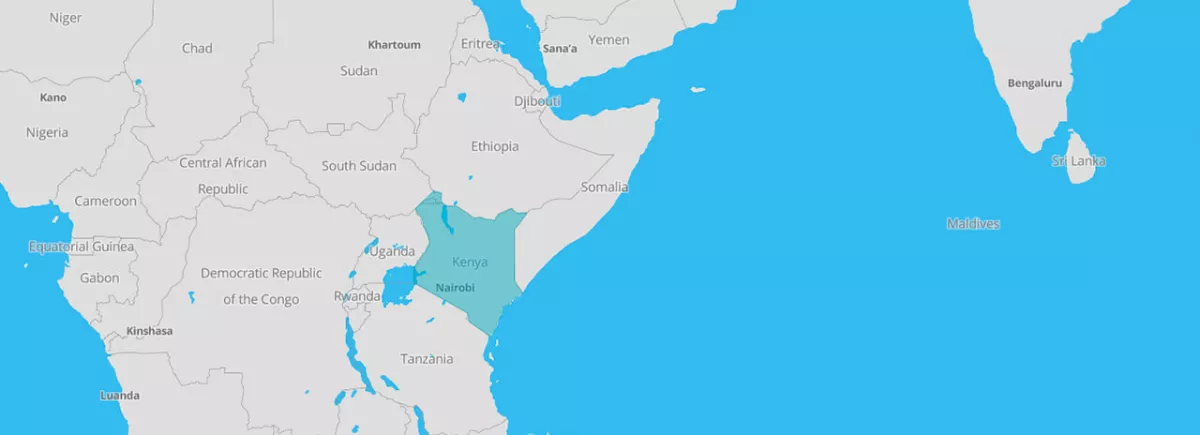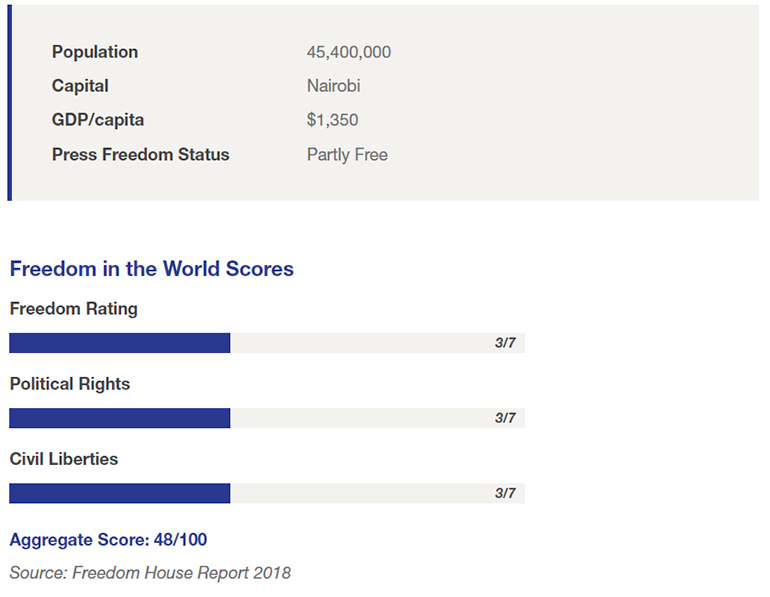
Civic tech in Africa: Kenya
This sheet proposes a synthetic presentation of civic tech in Kenya.
Connectivity
The level of Internet penetration in Kenya was estimated at 26% in 2016 according to the
UIT. With
regard to 3G/4G coverage, Kenya is a pioneer in Africa, with 40% of the adult population having at least occasional access to the Internet, according to figures from
Pew Research. Mobile Internet will be more rapid than in the United States.
National policy
In 2014, the country's parliament adopted a legislative framework for digital and ICT policy. The Kenyan Commission for Human Rights recognises the link between Internet use and freedom. In 2016, the law on access to information had a positive impact on the consideration given to civic tech projects by state institutions.
Freedom of expression
According to the 2017 edition of the
Freedom House report report on Internet freedom in Kenya, the country
is placed 29th on the global ranking, but still needs to take important steps. Many bloggers and social media users in Kenya have been arrested or interrogated in recent months for expressing critical views online, and this indicates an alarming trend in terms of freedom of expression.
History and development of civic tech in Kenya
The first civic tech initiatives appeared even before the term civic tech was coined. Many of these initiatives are now at an advanced stage of maturity, in particular
Ushahidi – launched in 2008 during the violent post-election uprising - and also Mzalendo (“patriot" in Swahili), whose stated mission since 2005 has been “to keep an eye on the Kenyan Parliament".
Kenya has adopted a number of regulatory instruments that make room for projects based on new technologies to encourage public participation, improve democracy, and strengthen respect for rules on transparency.
A pioneering country, with civic tech projects looking to gain autonomy
If Kenya is now a pioneer in Africa, in many aspects of digital, this is thanks to various elements: a good quality connection, a positive legal and regulatory framework, high quality university education and without doubt, an important flow of trade, mainly with the USA (the setting up of large American businesses, high level of university exchange between these two countries).
The developments in the digital arena have allowed the emergence of a large, active community.



